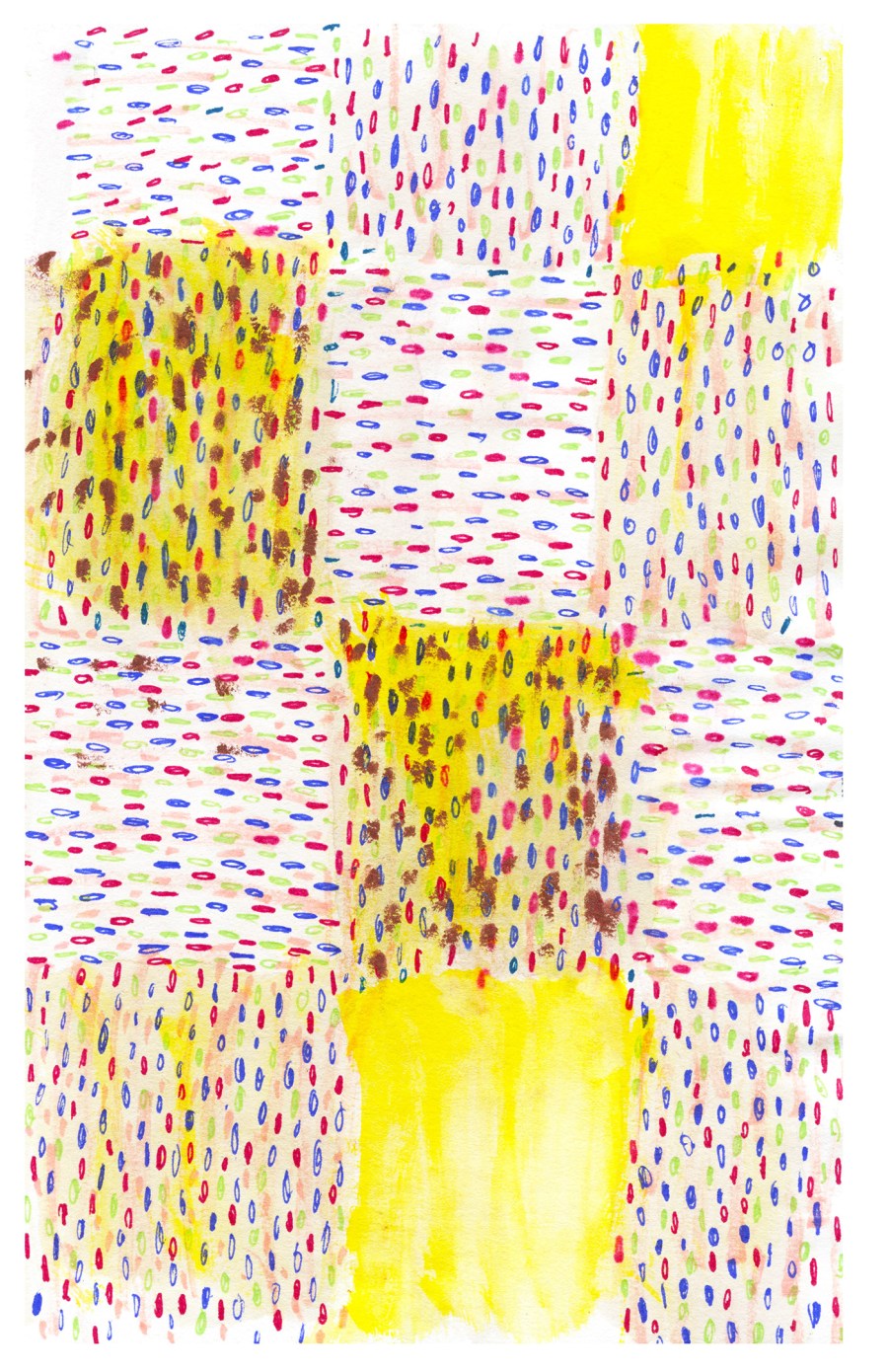
Butter
By Meghan Chou
Featured Art: Stephen Reichert, Untitled, 2014. Oil on canvas, 12″ x 12″. “Cirlce” series.
I first saw her aboard the JADE PRINCESS, a cruise ship several miles off the coast of New Hampshire. She wore ribbons in her hair and a leather choker around her neck that read GIVE ME A REASON. The two of us made up the entire wedding party. I played the roles of daughter and maid of honor and she, her father’s best man. The other guests were staff on their dinner break and a couple gamblers, vying for a seat at the blackjack table.
The captain kept the ceremony short (on autopilot like his ship). Ma had already been married twice, yet for Husband #3, she still felt giddy and hopeful. Where I saw folding chairs and a wrinkled backdrop, she saw romance. Where I saw a cardboard cutout of her last boyfriend, she saw the love of her life. When the time came to exchange vows, I handed Ma the wedding band for her five-second fiancé, a mood ring from LOST & FOUND that glowed black in my sweaty hands. The best man gave her father a light-up jelly ring and our parents sealed it all with a kiss.
“Faye,” she introduced herself at the reception, my stepsister before I learned her name.
“Lenny.”













